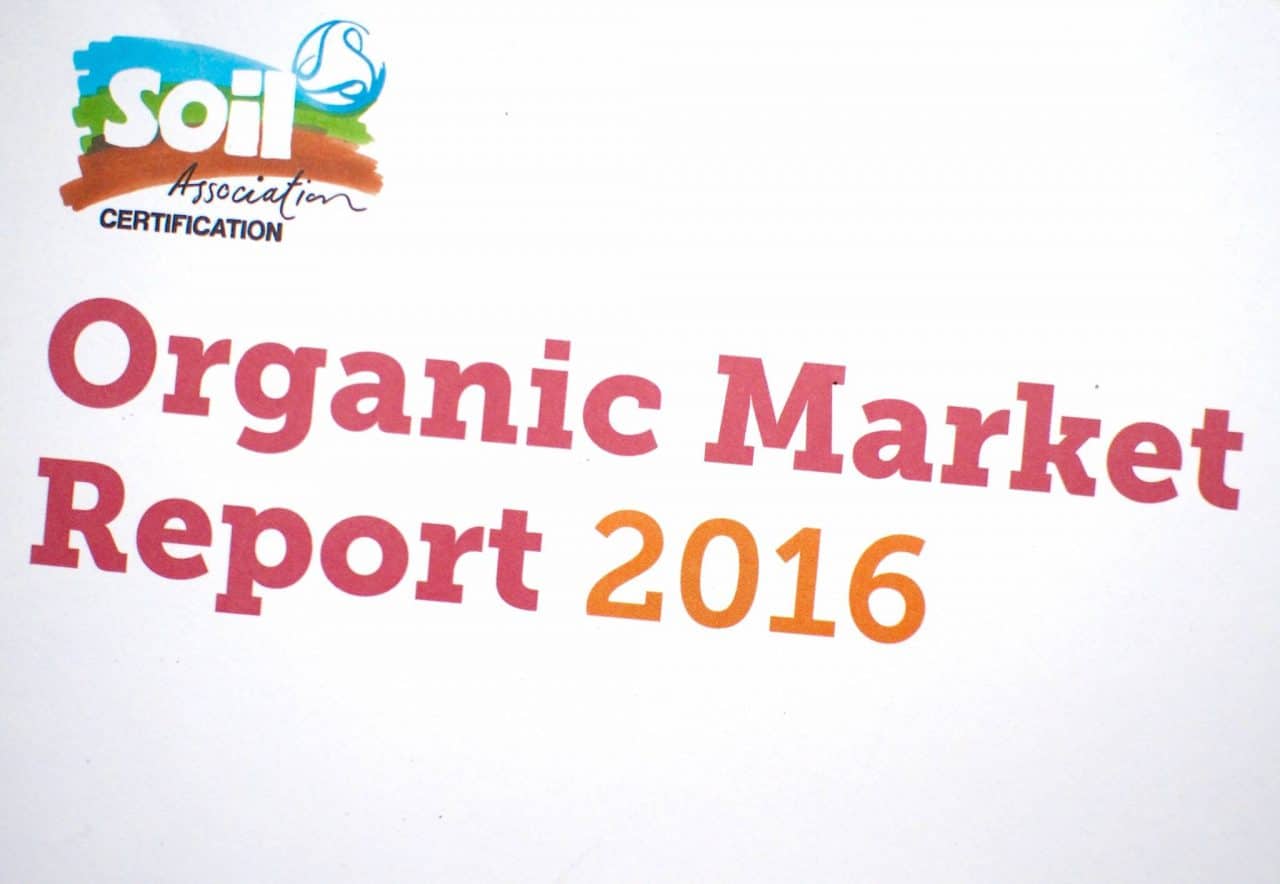Organic product sales grew 4.9% to £1.95 billion in 2015 according to figures released today by the Soil Association.
The Organic Market Report 2016 shows that sales of organic have continued to outperform the non-organic grocery market, which decreased by 9% over the same period.
The report shows that independent retailers (with organic sales up 7.5%) and box schemes (up 9.1%) are still leading the way. Consumers are now spending £544 million through these channels. 85% of indies say the anticipate further growth in in 2016.
While the supermarkets saw growth of 3.2% their share of the total organic market dropped to 69% – ten years ago it was closer to 80%.
The organic health and beauty sector was one star performer, recording growth of 21.%, taking sales to £54.2 million. Grocery too saw strong growth, driven by innovation from brands in categories like spreads, oils and vinegars and tea.
Another highlight is catering.The amount of organic food used by the catering sector grew by 15.2% in 2015, making it worth £64.3 million to organic producers. The £9 million spent on organic food through the Soil Association’s Food for Life Catering Mark scheme has been a major contributor to that growth.
The Report confirms that the profile of organic shoppers is changing. The 25-44 age group is still the most valuable, but Millennials – people born between 1980 and the early 2000s – are also becoming key organic consumers.
64% of people who buy organic describe themselves as people who like to look after their health.
Top five reasons for buying organic
- No pesticides
- Tastes better
- Better for the environment
- Better for animal welfare
- Better quality
Welcoming the report’s findings the Soil Association’s chief executive, Helen Browning, said: “A younger generation is coming to organic, re-invigorating it and driving fresh growth”. She confirmed that the organic charity would continue to support and encourage independent retailers who were “flag-bearers” for organic. “They key thing is to make organic a destination, not just an add on. We need to help make organic visible and ensure it becomes a taking point in store.”
“A younger generation is coming to organic, re-invigorating it and driving fresh growth”
Browning acknowledged that challenges remained – particularly around the amount organic farmland in the UK, which has declined, leading to reliance on exports for arable crops. “Keeping supply and demand in balance is challenge. But I think we are seeing the tide beginning to turn.”
She said that soil would continue to be a major focus in 2016. “When people start to understand the huge importance of soil – literally, to the success of our species – they really get behind the organic message.”
Browning predicted that the organic market would grow 5% in 2016 and would break through the £2 billion barrier.




